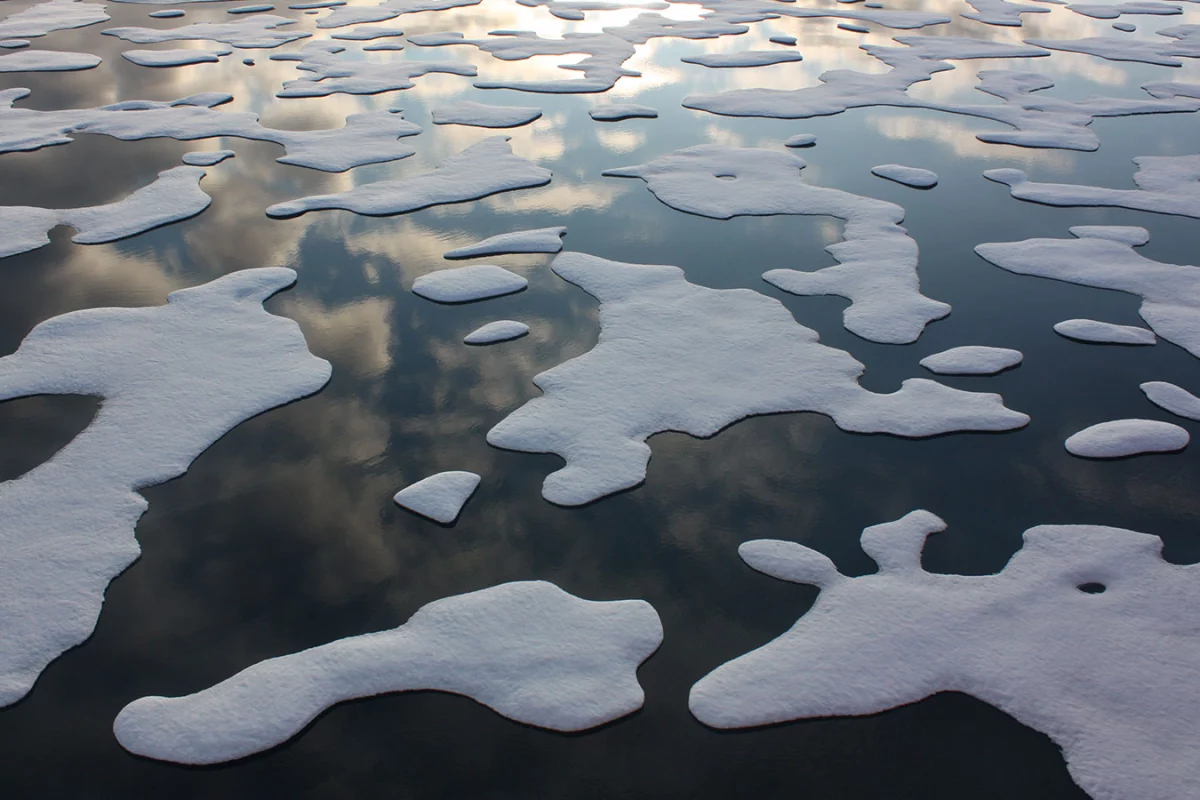The Arctic is undergoing a significant transformation as a result of climate change, with the warmer conditions thawing out its sea ice at an increasingly alarming rate. A new NASA-led study has illuminated one of the consequences of this, with satellite data revealing that the ice melt is flooding one of the region’s significant ocean currents with fresh water, which the scientists believe could have a ripple effect across the Atlantic and lead to a cooler Western Europe.
For decades, scientists have been keeping a close eye on Arctic sea ice coverage as an indicator of a warming planet. One 2016 NASA study found the total coverage at the height of the melting season was 40 percent less than in the late 1970s. Another study from Britain’s University of Exeter last year predicted that the Arctic Ocean could experience an ice-free summer within the next 20 years. Today, NASA calculates that Arctic sea ice is declining at a rate of 12.85 percent per decade.

In a new study, NASA scientists have drawn on 12 years of satellite data to track the behavior of one of the region’s major ocean currents. Called the Beaufort Gyre, this circular current is key to keeping the environment balanced, gathering fresh water from melting glaciers, rain and river run off which sits above the warmer saltier water to prevent the thawing of sea ice.
But the team’s analysis has revealed that the Beaufort Gyre is now taking in unprecedented amounts of fresh water, enough to almost fill Lake Michigan twice over since the 1990s. According to the scientists, this is being driven by the significant loss of sea ice in the summer and autumn, which also makes the Beaufort Gyre more exposed to winds.
Normally, the gyre gradually releases its fresh water supplies into the Atlantic Ocean, but these increased winds are causing it to spin faster and faster, trapping the fresh water within the current instead. Traditionally, these winds change direction every five to seven years, but for the last 20 have persistently blown the current in a westerly direction. Were the wind to suddenly change direction now, all that built up fresh water could be pumped into the Atlantic Ocean at once.
"If the Beaufort Gyre were to release the excess fresh water into the Atlantic Ocean, it could potentially slow down its circulation,” says Tom Armitage, lead author of the study and polar scientist at NASA's Jet Propulsion Laboratory in Pasadena, California. “And that would have hemisphere-wide implications for the climate, especially in Western Europe.”
This is due to how the Beaufort Gyre interacts with another current important for the Earth’s climate called the Atlantic Meridional Overturning Circulation. When fresh water is released from the Arctic into the North Atlantic Ocean, it cools, sinks to the bottom and pushes water south toward the tropics, before carrying heat from the tropics back toward northern regions of the planet like Europe and North America.
If the Atlantic Meridional Overturning Circulation was to be slowed down in a significant way, it could disrupt one of the key systems that regulate the Earth’s climate. The scientists continue to closely monitor the Beaufort Gyre for this reason.
"What this study is showing is that the loss of sea ice has really important impacts on our climate system that we're only just discovering," says Alex Petty, co-author of the study.
The research was published in the journal Nature Communications.
Source: NASA




